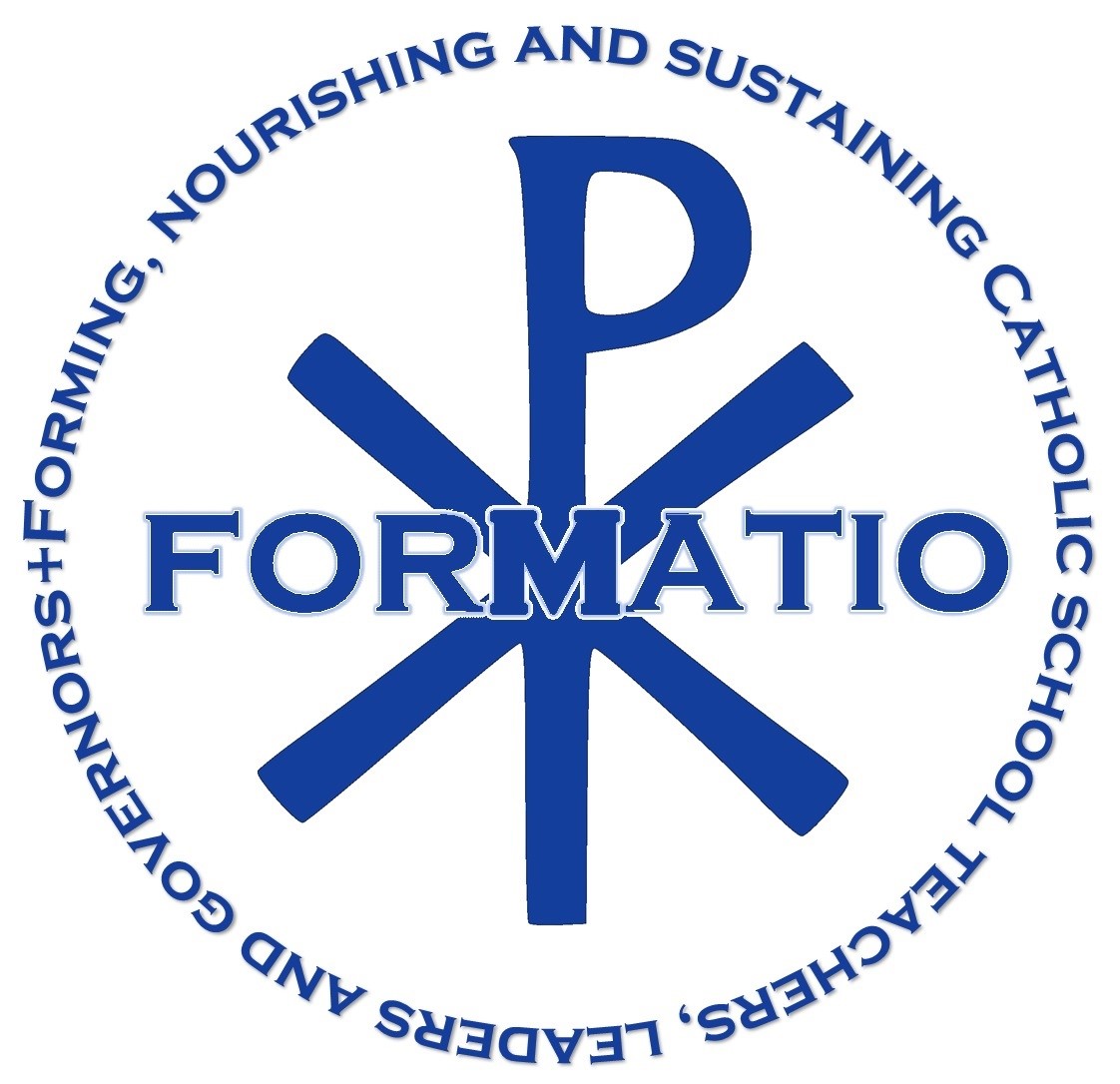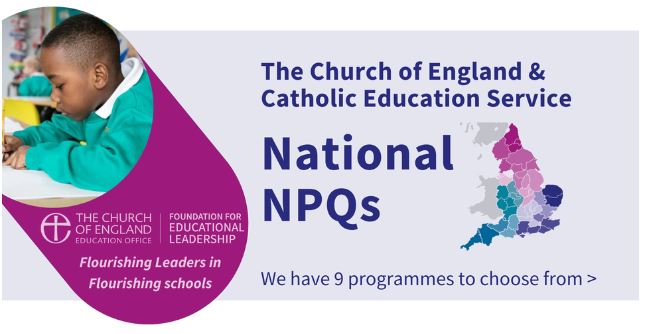Case study: St Joseph’s Cathedral Primary School - welcoming asylum seeker children in Swansea
 St Joseph’s is a voluntary aided Catholic primary school in the Archdiocese of Cardiff-Menevia, with around 500 pupils, 45% of whom have English as an additional language (EAL).
St Joseph’s is a voluntary aided Catholic primary school in the Archdiocese of Cardiff-Menevia, with around 500 pupils, 45% of whom have English as an additional language (EAL).
Recognising the school’s efforts to welcome children from refugee and asylum seeker families, St Joseph’s became the city’s first Primary School of Sanctuary and was presented with the award by the Lord Mayor of Swansea.
The journey began through the Lead Creative School initiative funded by the Welsh Government and Welsh Arts Council, which saw the pupils exploring 19th century Irish immigration to Wales. St Joseph’s Cathedral was built in order to provide for the faith of these new arrivals.
Pupils’ artwork, including a sanctuary sculpture and song, were displayed in the Swansea Museum, Swansea University’s Taliesin Arts Centre, the Tate Modern in London, and in the Senedd.
Previously, refugee parents would ask the headteacher how to access services and support, and with around 30 pupils from asylum seeker families eventually advice from the City of Sanctuary charity was sought. A dedicated Sanctuary Lead Teacher was appointed, staff were trained, and the governing body pledged support for School of Sanctuary status with annual progress reviews.
St Joseph’s has developed EAL classes and offered volunteering opportunities to parents from asylum seeker and EAL backgrounds. Many of those who participated have gone on to gain refugee status and continued working in schools or entered training.
The theme of sanctuary is woven into the curriculum, with class books and reading materials highlighting the issue, and pupils have explored refugee camps in Lebanon using virtual reality headsets. The school’s Enterprise Week activities also involve fundraising for charities including City of Sanctuary.
Additional support is provided for pupils with EAL and from asylum seeker backgrounds, such as laptops and class resources translated into their home languages. A Young Interpreters scheme sees fellow pupils trained and supervised by staff to act as a ‘buddy’ through the school day.
St Joseph’s pupils have also exhibited their School of Sanctuary class work in other schools, to help encourage more participation in the scheme. Following its successful Estyn inspection in February 2022, the school was asked to share good practice in creating a culture of inclusion that supports pupils’ well-being, encourages positive attitudes to learning and secures progress and achievement for all.
The Bishop’s Conference of England and Wales last year published Love The Stranger, a set of guiding principles to inform a Catholic response to the issue of refugees and migrants.
Leeds Trinity University brings together corporate sector voices, global ethics advocates and academics to discuss business ethics
 Hosted online on 13 September, Leeds Trinity University, one of four Catholic universities in England, brought together students, staff, academics, corporate sector business leaders and advocates for ethical leadership to discuss the values needed for a better global future.
Hosted online on 13 September, Leeds Trinity University, one of four Catholic universities in England, brought together students, staff, academics, corporate sector business leaders and advocates for ethical leadership to discuss the values needed for a better global future.
The discourse was rich and varied, ranging from how business can remain competitive without making profits more important than people, and to articulate why values still matter in today’s marketplace.
Jonathan Liu (pictured, second from right), Vice-Principal at London Churchill College, and author and lecturer Paul Palmarozza (pictured, right) highlighted that business can be done credibly while being mindful of respect for diversity, the human person, and dignity. This should also include key principles such as integrity, transparency and respect for cultural competencies needed to engage with a global world of business.
Dr Ann Marie Mealey (pictured, second from left), Director for Catholic Mission at Leeds Trinity University, stressed the need to revise subject benchmarks for business, to drive a deeper engagement for students across all levels of study beyond just acknowledging ethics in business. She said what is needed is a willingness on behalf of each and every person to study and to choose to be a certain kind of person. This will involve the need to develop values and virtues that guide decisions in business life and attest more deeply to the mission and purpose of the Catholic university, which is to promote the ‘authentic good of individuals and of human society as a whole’ (Ex Corde Ecclesiae, 7).
She also showed examples of how High Learning Pay Off Assessments could be designed by lecturers to use in class and enable students to consider real world dilemmas in business they might face in future.
Professor Charles Egbu (pictured, left), Vice-Chancellor of Leeds Trinity University, facilitated a discussion on how we might design and implement an ethical business strategy for Catholic universities today. Dr Neil Hawkes, Global advocate for ethical leadership and founder of the International Values-based Education Trust (IVET Foundation), joined from New Zealand to provide insights on global leadership which he has shared as a delegate at the United Nations. Leeds Trinity’s first Vice-Chancellor, Professor Freda Bridge, also participated in the debate.
The conference was led and organised by Dr Mealey, and supported administratively by the newly appointed Project Officer for the Directorate of Catholic Mission, Ms Sapna Chowdhury.
Dr Mealey said: “We were really delighted about the level of the discussions that were had across a range of subject disciplines, faiths, and perspectives. There was a natural convergence regarding the need for people to freely choose to be a certain kind of person and to develop the virtues needed for a better business future overall.
“We were sad that many of our delegates from the Philippines were unable to join us as they had been hit by a typhoon on the morning of the conference which affected their power supply. But it was a great reminder to us to stand in solidarity with the entire world and find other ways of sharing information, especially to colleagues in our Catholic schools in the global south as we are one human family in search of truth in every age.
“As the Pope reminded everyone during his recent visit to KU Leuven, Catholic universities must not be ‘cathedrals in the desert’ but a critical space that dares to think.”
Schools competition launched by Columban Missionaries in Britain
 The Columban Missionaries in Britain have launched their 2024/25 Schools Media Competition, which has the title Jubilee: Pilgrims of Hope.
The Columban Missionaries in Britain have launched their 2024/25 Schools Media Competition, which has the title Jubilee: Pilgrims of Hope.
Encouraging creativity and faith engagement with issues in the world today, this year’s competition welcomes both written and image entries until 7 February, 2025, with winners being announced on 10 March. Cash prizes will be awarded to the winning entrants and the first prize is an impressive £300!
High-profile judges from the world of journalism have been secured and winning entries will be published in the Columbans’ Far East magazine, Vocation for Justice newsletter, Columban websites in Ireland and Britain, Columban social media and in other Catholic media. The Columbans are delighted that Ruth Gledhill of The Tablet and Jo Siedlecka of Independent Catholic News, are among the judges in Britain.
The competition is targeted at students aged between 13-18 years old. Pope Francis has decreed that 2025 will be a year of Jubilee. The theme he has chosen is ‘Pilgrims of Hope’ and he urges us to look for signs of hope in the world around us and work for peace and justice. “May the Jubilee be an opportunity to be renewed in hope,” he says.
Young people are invited to highlight one community or group bringing hope in the world today. This might be one they are part of or one that inspires them. The community/group chosen should act in some way for the common good, responding to the Cry of the Earth and the Cry of the poor (Laudato Si’ #49).
In his role as Columban Justice and Peace Education Worker in Britain, James Trewby visits young people in schools and sixth forms and runs workshops, retreats and assemblies to promote justice, peace and the integrity of creation. He said: “I’m delighted that the Columban Schools Media Competition this year focuses on the theme of Jubilee, linking into the Jubilee Year in 2025 declared by Pope Francis. The Columbans are keen to nurture the student voice and provide an opportunity for young people to explore positive initiatives on the theme.”
A core aspect of Columban mission is justice, peace and ecology. The biblical Jubilee Year occurred every 50 years and involved the cancelling of debts, a period of rest for people and the Earth, and land being restored to landless communities. Poor and vulnerable communities were given the opportunity for a fresh start on a more equal footing, and that need is there in today’s world. Internationally, Columban Missionaries support inspirational communities assisting migrants and asylum seekers, caring for the environment, and calling for Jubilee debt cancellation.
Students will find the Columban Competition website an essential resource. It includes information on the theme of Jubilee and Pilgrimage plus examples of Columban projects and inspirational communities. There are also details on submission of entries and a helpful FAQ page. The website provides material suitable for students, teachers and parents.
This is the eighth annual Columban Schools Media Competition. Past themes have focused on migrants, climate change, throwaway culture, racism, 21st century changemakers, peacemaking and biodiversity.
Water-saving framework launched for Catholic schools and communities
 A NEW multi-million-pound framework has been launched to provide sustainable water savings to Catholic schools and communities within the UK.
A NEW multi-million-pound framework has been launched to provide sustainable water savings to Catholic schools and communities within the UK.
Churchmarketplace, the Catholic Church's national purchasing platform, has launched an innovative water services framework to provide cost-effective and environmentally sustainable water solutions to Catholic communities across England.
Established in 2010, Churchmarketplace leverages the purchasing power of the Catholic Church in England and Wales to deliver best value on a wide range of goods and services.
Its water services framework, launched this month, is designed to drive value, reduce water consumption, and support social value projects in partnership with the Catholic Church. This marks another significant milestone in Churchmarketplace’s mission to align its procurement strategy to its sustainability principles.
Jenny Booth, Director at Churchmarketplace, said: “We welcome Wodr and Business Stream to complete the utilities offering within the Churchmarketplace service. They will be delivering the water procurement solution nationally across our Catholic organisations.”
To create the framework, Churchmarketplace collaborated with specialist water consultancy Wodr to lead a rigorous tender process to identify a sustainably focused partner to be the preferred water retailer, ultimately selecting Business Stream.
With benefits such as water efficiency packs, site water audits and leak detection support, joining the framework will deliver instant sustainable savings to Catholic organisations.
Educational materials on water use will also be created for sustainability-focused curriculum studies, supporting the ‘Care for our Common Home’ campaign, with the programme teaching children about the importance of saving water in the context of the climate crisis.
The framework has already awarded a quarter of a million-pound contract to Business Stream to support several Catholic Academies in the Archdiocese of Birmingham.
Mark Edwards, Director at Wodr, said: “This is a fantastic collaboration to be involved in with so many important elements all designed to make a real difference to the Catholic community within the UK.”
Tom Abel, Director of Sales at Business Stream, said: “As a water retailer who is passionate about the environment, the partnership with Churchmarketplace and Wodr aligns perfectly with our sustainability objectives. We’re looking forward to working together to help other organisations on the framework to achieve their sustainability goals.”
Teach in Herts (HFL Education) now using CES-approved online application forms
 Teach in Herts is the dedicated platform for jobs in education and childcare, with more than 700 of the county’s schools, trusts and settings using the platform as their primary recruitment resource and over 50,000 visitors per month. The site lists around 10,000 vacancies every year across four main categories: teaching, leadership, early years and professional and support.
Teach in Herts is the dedicated platform for jobs in education and childcare, with more than 700 of the county’s schools, trusts and settings using the platform as their primary recruitment resource and over 50,000 visitors per month. The site lists around 10,000 vacancies every year across four main categories: teaching, leadership, early years and professional and support.
Recognising the need for a more streamlined application process, Teach in Herts has worked to simplify and enhance the experience for both Catholic schools and for their prospective candidates. This improvement ensures that the unique data capture requirements of Catholic schools are met while making the process easier for applicants.
Developed in close partnership with the CES, this advancement allows Catholic institutions to manage their recruitment seamlessly through the platform, eliminating the need for downloadable application forms. These forms, which are often time-consuming, have been replaced by a CES-approved online application form. This form automatically populates candidate’s information from their profile, reducing the time required to complete each application and increasing the likelihood of submission.
Carole Bennett, CEO of HFL Education said: “I am delighted that we have worked together with the Catholic Education Service in order to enable our Catholic school colleagues to benefit from a streamlined recruitment service with Teach in Herts. We at HFL are never prouder than when we work with our partners to help improve the quality of teaching and learning - and strong recruitment is critical to the strength and success of schools, trusts and settings.”
Paul Barber, CES Director, said: “The CES has been pleased to work with HFL Education to ensure that its application forms are suitable for use in Catholic schools. It is important that the CES provides support to enable Catholic schools to attract the best candidates for roles in their schools.”
To learn more, get in touch on 01438 544468 or email Ця електронна адреса захищена від спам-ботів. Вам необхідно увімкнути JavaScript, щоб побачити її.
Formatio: ‘Learn Locally’ to be a teacher in Catholic schools
 One of the first Initial Teacher Education (ITE) schemes specifically aimed at teaching in Catholic schools is set to launch in September.
One of the first Initial Teacher Education (ITE) schemes specifically aimed at teaching in Catholic schools is set to launch in September.
Learn Locally is for trainee teachers who want to learn to teach in Catholic schools in the Greater Manchester area.
It will be delivered by Liverpool Hope University and Emmaus Catholic Academy Trust (CAT), as part of the Formatio partnership of dioceses, Catholic multi-academy trusts and the four Catholic universities in England.
Alongside the delivery of the accredited curriculum required by Ofsted and the Department for Education, enhancements to the curriculum are being developed that will add a Catholic element and the distinctive ethos of the CAT.
Emmaus will recruit trainees with the potential to be strong, high quality Catholic teachers and future leaders for the CAT family. Staff have been identified and trained to become mentors and curriculum tutors for the new trainees, with continuing professional development provided by Liverpool Hope University.
Professor Cate Carroll-Meehan, Executive Dean of Liverpool Hope University’s Faculty of Education and Social Sciences, said: “We are delighted to partner with Emmaus Catholic Academy Trust to launch the Learn Locally programme. This innovative initiative aligns with the University’s strong commitment to working in partnership with schools and dioceses to design, deliver and quality assure training which produces passionate and talented teachers.
“We have a long history in teacher education in the North West and look forward to working with Emmaus Catholic Academy Trust to develop the next generation of outstanding Catholic teachers in the region.”
Daniel Copley, Chief Executive Officer of Emmaus CAT, said: “Working together with Liverpool Hope, Emmaus CAT recognises that the ITE partnership can create strong foundations for the future Emmaus workforce.
"It forms part of the strategic development plans of Emmaus to ensure it attracts, retains and supports the flourishing of the best Catholic teachers and leaders for the Emmaus CAT and the wider Diocese of Salford.”
Similar teacher training schemes have also been set up with the Catholic universities by the Diocese of Westminster Academy Trust and Bishop Hogarth Catholic Education Trust, within the Formatio regional hub structure.
The Formatio partnership supports the CES and diocesan schools commissions to work with the four Catholic universities and Catholic multi-academy trusts in implementing strategies for school leadership and governance, as commissioned by the Bishops in 2017.
To find out more about establishing a similar ITE scheme contactЦя електронна адреса захищена від спам-ботів. Вам необхідно увімкнути JavaScript, щоб побачити її. or Sue Cronin, Director of Quality and Accreditation at Liverpool Hope University, atЦя електронна адреса захищена від спам-ботів. Вам необхідно увімкнути JavaScript, щоб побачити її.
Formatio: Ofsted praises ‘outstanding’ CES and C of E school leadership course
 Thousands of Catholic school staff have completed CES-led National Professional Qualifications (NPQ) training recently rated as ‘outstanding’ by Ofsted.
Thousands of Catholic school staff have completed CES-led National Professional Qualifications (NPQ) training recently rated as ‘outstanding’ by Ofsted.
Based on an inspection taking place during May, 2024, the report states ‘participants benefit greatly from the exceptional training’ which is delivered by ‘highly skilled and expert trainers, facilitators and coaches.’
The CES and Church of England Foundation for Educational Leadership (CEFEL) were named by the Department for Education as lead providers of a revised suite of NPQs. Curriculum design was shaped around leadership development to fit the needs of Catholic and Church of England school contexts.
So far 40% of the approximately 7,000 attendees have been from Catholic schools, equating to around 2,800 staff members being trained in high quality leadership.
The report states: “School leaders overwhelmingly state that participants apply their knowledge with conviction and confidence as a result of the training they have received during their NPQ programme. This, in turn, consistently benefits their school communities.”
The CES has developed the curriculum design around the NPQs, providing a vision-driven additionality option unique to the CEFEL/CES offer. The Catholic NPQ+ offers three modules, Form, Nourish and Sustain, based on formation, the Catholic character of a school and sustaining leadership roles in Catholic education.
Catherine Bryan, Assistant Director of the CES, said: “We’re delighted with this ‘outstanding’ rating from Ofsted, which demonstrates the excellent joint working with colleagues across the Catholic sector and with the Church of England.
“The Formatio partnership continues to assist the dioceses with strategies for school leadership development, and we hope many more staff will continue to be supported to attend this training.”
NPQs are provided by 28 delivery partners across the country including teaching school hubs and multi-academy trusts. There is also the opportunity for dioceses to act as delivery partners for the additional support, either individually or as part of the four Formatio regional hubs.
The Formatio partnership of dioceses, Catholic multi-academy trusts (CMATs) and the four Catholic universities in England supports the CES and diocesan schools commissions in implementing strategies for school leadership and governance, as commissioned by the Bishops in 2017.
Formatio: academisation - ‘if I knew then what I know now’
 Four Chief Executive Officers (CEOs) of Catholic multi-academy trusts (CMATs) in the Diocese of Hexham and Newcastle recently shared their thoughts on how their schools had academised.
Four Chief Executive Officers (CEOs) of Catholic multi-academy trusts (CMATs) in the Diocese of Hexham and Newcastle recently shared their thoughts on how their schools had academised.
The 12 July panel discussion was part of a conference for school leaders organised by the diocese’s Department for Education, and the third immersion day for the Catholic Academy Trust Training Collaborative (CATtColl).
CATtColl is the national network of CMATs, and the largest network of academies in the country. It delivers continuing professional development in collaboration with the four Catholic universities on behalf of the Formatio partnership of dioceses, CMATs and universities.
The following is a summary of some key points of the discussion:
Common ownership and co-creation by school staff is essential in developing a new curriculum, along with enabling schools to adapt them to meet their local context.
Continuing Professional Development (CPD) for all school staff has proved an effective way for CMATs to communicate directly with employees at all levels. Posting information on school computer screensavers is also a useful communications channel.
A way of explaining academisation is a shift from school services provided by a non-Catholic body [a local authority], to a Catholic body [a CMAT].
CMAT ‘schemes of delegation’ have proved helpful for governors, to understand their different responsibilities within a multi-academy trust system.
Staff members of CMATs can also attend the governing body meetings of every school within the CMAT, albeit a big undertaking. This has enabled strong lines of communication.
Trust boards had found that being provided with detailed statistical information on all schools within CMATs was unnecessary for a single meeting – instead a detailed focus on particular schools was proving more useful.
In some CMATs the development of Key Performance Indicators is also being explored to assist trust boards with their strategic remit, while others prefer clarity around expectation and quality statements to ensure progress is secure.
Some small schools may not be financially viable, but it is important to retain Catholic education in these communities.
None of the CMATs operated General Annual Grant (GAG) pooling.
An equitable model can help small schools develop a budget, supported by schools across the CMAT.
A strong focus on children at the Early Years Foundation Stage was seen as essential in reducing attainment gaps that significantly widen in later years.
MyNewTerm continues to reshape Catholic school recruitment with CES-approved online application forms
 MyNewTerm is the applicant tracking system of choice for thousands of schools and multi-academy trusts (MATs) across England, including many hundreds of Catholic schools since MyNewTerm began collaborating with the CES.
MyNewTerm is the applicant tracking system of choice for thousands of schools and multi-academy trusts (MATs) across England, including many hundreds of Catholic schools since MyNewTerm began collaborating with the CES.
Working extensively with the unique requirements of Catholic schools and MATs, MyNewTerm has streamlined the recruitment process for both candidates and employers to ensure compliance with Keeping Children Safe in Education (KCSiE) and ensure that the application forms, in particular, are appropriate for use in Catholic schools and MATs and approved by the CES.
Change within school recruitment is needed more than ever today; the labour market continues to remain challenging, with recruitment processes for many Catholic schools still time-consuming, costly and labour-intensive, and the concern of losing the best candidates also often looms.
MyNewTerm’s Catholic partner MATs and schools have already innovated with speed and ease to improve their education provision, by attracting the best candidates and deploying a fully digitalised process; all offered by the MyNewTerm platform.
Founded by a former teacher, MyNewTerm is the leading applicant tracking system for schools and MATs and provides employers with some of the following benefits:
- Improved efficiency
- Ensured compliance with KCSiE
- CES-approved application forms
- Fully digital application process for candidates
- Integration with the DfE Teaching Vacancies Service
Joe Richardson is Strategic Executive Leader at St Thomas Catholic Academies Trust, which is made up of 17 schools within the Diocese of Northampton and has partnered with MyNewTerm for several years. He said: “MyNewTerm has sensitively and thoughtfully adapted the platform to reflect the distinct needs of Catholic schools, ensuring that specific needs are met in full. They constantly update the platform to reflect KCSiE and, for that reason alone, I cannot imagine being without it!”
Wayne Cartmel, Founder and Chief Executive Officer at MyNewTerm, said: “We are proud to have worked collaboratively with the CES to deliver on the specific requirements for Catholic schools to provide the benefit of being able to fully digitise the recruitment process. Removing barriers for prospective candidates is essential in a challenging recruitment market and we are pleased to be able to provide an online application process for all Catholic schools to benefit.”
Paul Barber, Director of the CES, said: “The CES has been pleased to work with MyNewTerm to ensure that its application forms are suitable for use in Catholic schools. It is important that the CES provides support to enable Catholic schools to attract the best candidates for roles in their schools.”
To learn more about the applicant tracking system of choice for the education sector and the bespoke online application process developed for Catholic Schools, get in touch here with the MyNewTerm team today.
Formatio: Catholic Initial Teacher Training schemes launching
 This September a new generation of Catholic teachers will be trained through three groundbreaking new schemes across the country.
This September a new generation of Catholic teachers will be trained through three groundbreaking new schemes across the country.
Led by the Formatio partnership of dioceses, Catholic multi-academy trusts (CMATs) and the four Catholic universities in England, 80 trainees start soon in what will be the first Initial Teacher Training (ITT) scheme specifically geared towards teaching in Catholic schools.
The Diocese of Westminster Academy Trust (DOWAT) identified pupils from the trust’s secondary schools interested in teaching, and gave them weekly lesson support experience. Working with St Mary’s University, DOWAT is delivering the CMAT ITT Direct programme for Formatio’s South East Regional Hub, with trainees to be based within the trust’s schools.
The trainees, many of whom are former Catholic school pupils, will additionally be shown how to participate in activities like collective worship and chaplaincy, as prospective teachers in Catholic education.
Pat Murden, Chief Executive Officer of DOWAT and a founder member of the Catholic Academy Trust Training Collaborative (CATtColl), said: “This came out of the Department for Education’s market review of ITTs, which represented an opportunity to think differently and act at scale. We’re developing a career path that starts at ITT and goes on to early career teacher, to master teacher, middle leader then senior leader.
“Our aim is to address teacher shortages, especially in Religious Education, to develop workforces reflecting the communities our schools serve, and provide a model that any other Catholic MAT can copy.”
Similar ITT schemes have also been set up with the Catholic universities by Emmaus Catholic Academy Trust, in the Diocese of Salford, and Bishop Hogarth Catholic Education Trust, in the Diocese of Hexham and Newcastle, within the Formatio regional hub structure.
The Formatio partnership supports the Catholic Education Service and diocesan schools commissions working with the four Catholic universities and CMATs in implementing strategies for school leadership and governance, as commissioned by the Bishops in 2017.
CATtColl is the national network of Catholic multi-academy trusts (CMATs), representing 44 CMAT CEOs from all English dioceses, more than 600 schools, 250,000 students, 20,000 staff, and is the largest network of academies in the country. It delivers continuing professional development in collaboration with the four Catholic universities on behalf of Formatio.

